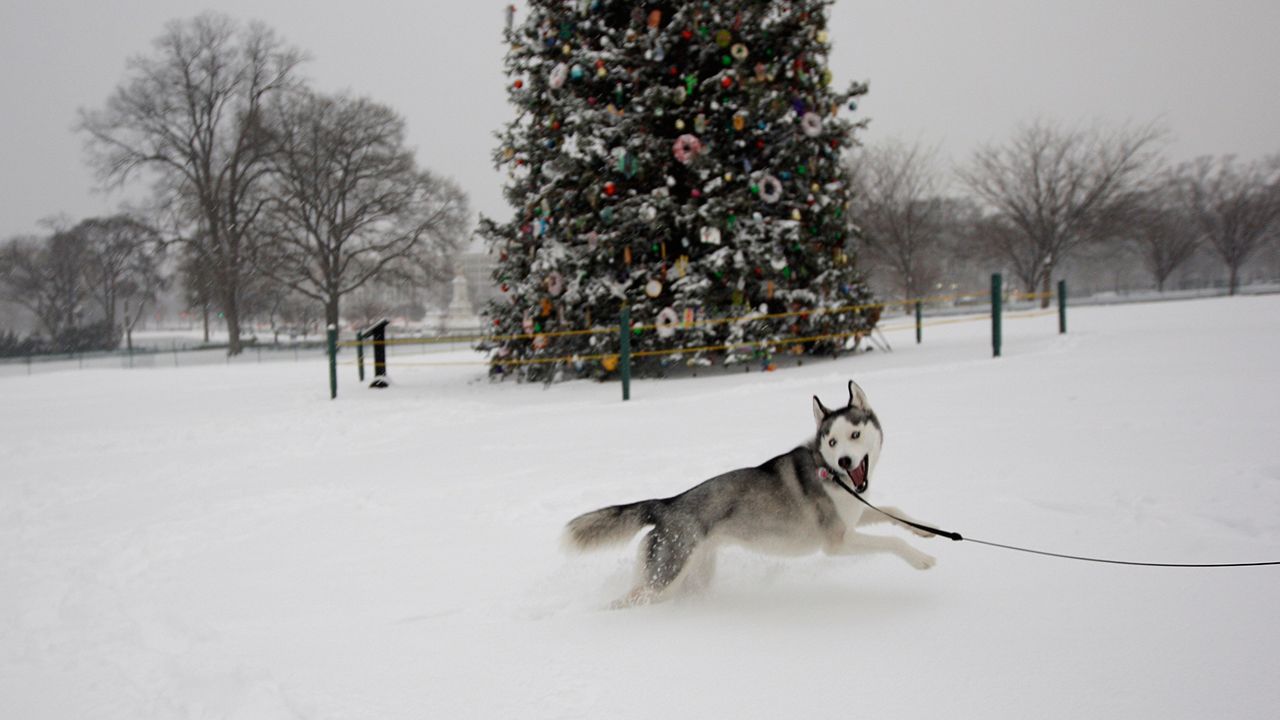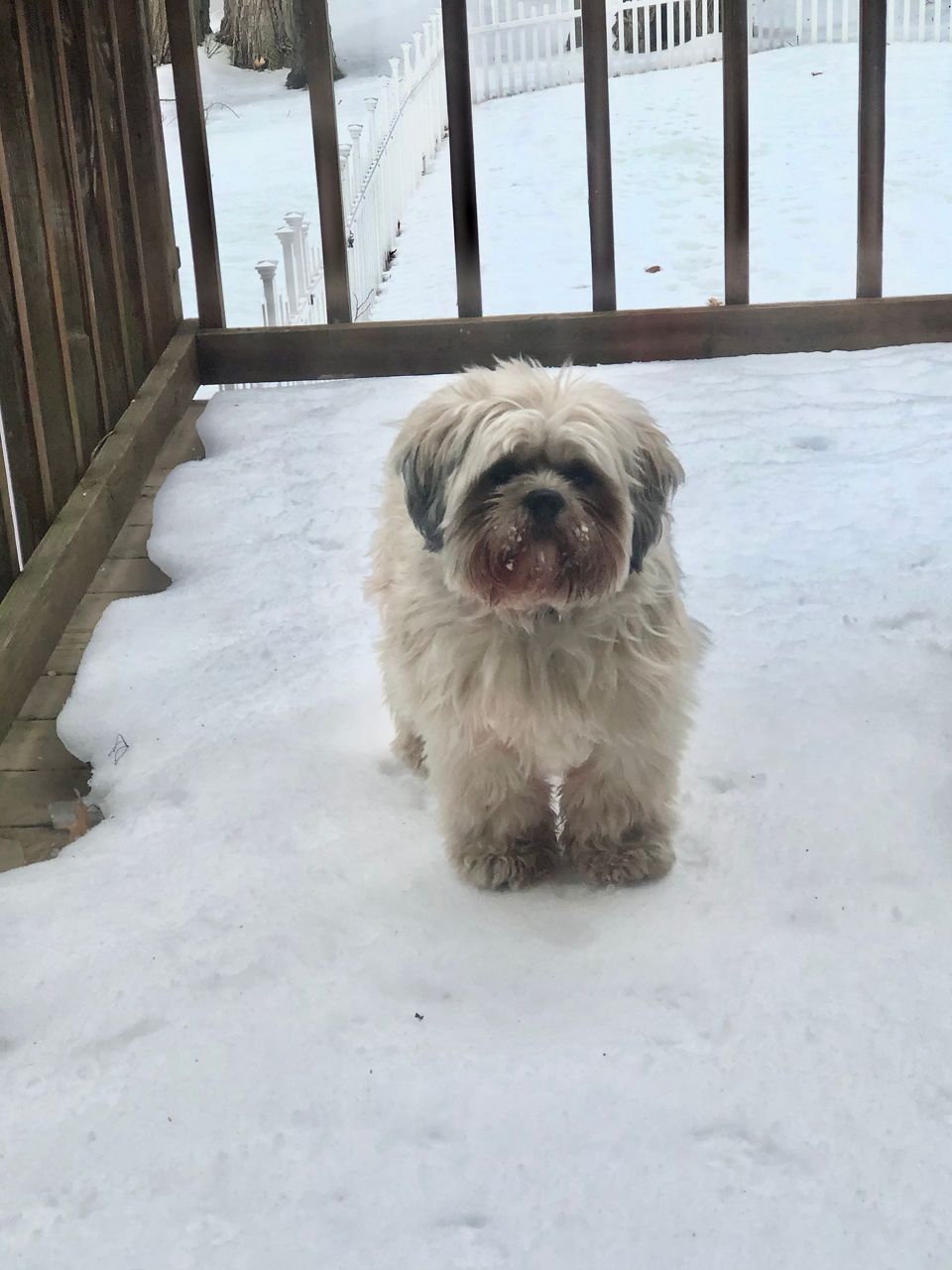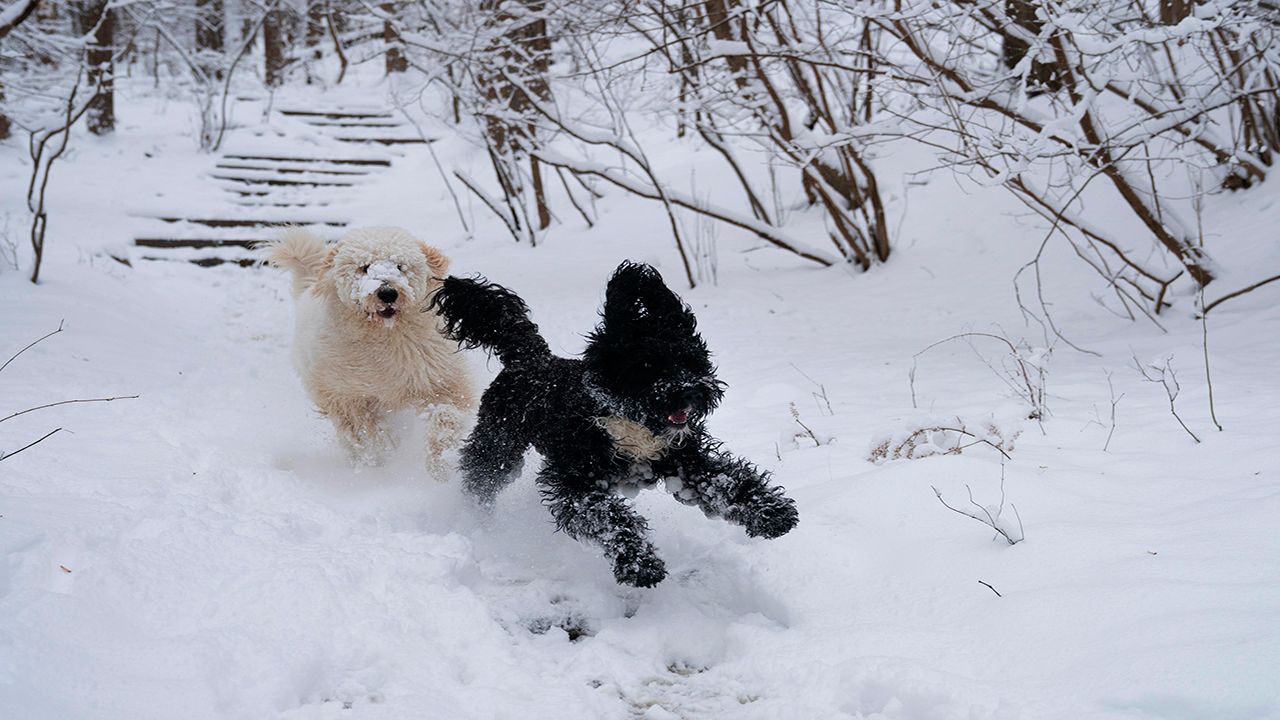Have you noticed that just like humans, there are some dogs who adore snowy days, while others prefer to bury their heads under the covers and wait for the snow to melt?
What is it that makes some dogs leap into the fresh snowpack, while others lean toward the more temperate types of weather?
Is it strictly about their physical make up, or is weather preference based on the areas they live in?
Dogs who have natural long coats and undercoats of fur tend to more easily endure the cold. Meanwhile, short hair and hairless breeds are less tolerant of the chill.
Breeds like huskies and malamutes have wide paw pads and their bodies are covered in snow-repelling fur, along with smaller ears for less exposure to frostbite. Here are other types of dogs that originate from cold and snowy climates.

This is not to say that all long-haired dogs prefer a romp in the snow either, as there happen to be plenty of larger, hairier dogs that balk at the way the snow looks or feels. I occasionally witness dogs that react this way at the dog park.
Snow brings a welcome sensory input for most dogs, however. For some pooches, it can feel odd to the touch or sound as they walk over it, causing them to shy away.
Even the hardiest of dogs can be prone to winter hazards, so here are some additional pet health and safety tips from the AKC experts.
There are plenty of short-haired dogs that genuinely enjoy playing in the snow too, although they may not endure it for quite as long as their hairier counterparts. Smaller breeds with short legs and bare bellies might get cold fast and tire out as they wade or jump through deep snow.
Puppies, elderly dogs, and dogs with arthritis or other health problems can also be more sensitive to cold and snowy conditions.
Now, consider a dog's smelling section of the brain is 40 times larger than ours, and it is known as their primary sense. Even so, as cold and snow blankets the ground, it masks the intensity and number of scents a dog would normally enjoy.
This too may be an undesirable effect that snow brings for some dogs.
So, we've learned that some canines are better suited for the milder weather, and if you do choose to take them out in the cold and snow, it's important to keep excursions short and be on the look out for possible signs of hypothermia.
Signs that your dog might be uncomfortable due to the cold:
- Shivering
- Anxious behavior
- Lifts their paws up off the ground
- Hunched posture or a tucked tail
- Reluctance to go outdoors
- Whining, whimpering or barking
- Refuses to move/walk once outside
- Seeks out areas for shelter
If you are a new dog owner and are looking for some great tips on how to keep your dog safe during the winter season, check out this blog from Spectrum News' Kaylee Wendt.
Also, here's some more helpful information from Spectrum News' Vanessa Richards on cold weather pet safety.
If you do happen to have a dog that likes the winter weather, you can both benefit from going out into it.
Getting fresh air and moving your body improves circulation and boosts you and your dog's mood. If you are not keen on trudging through the snow in boots, you can try the lower impact version by snowshoeing with your dog beside you.
It can also boost your companionship! You can spend some quality time with your pooch out on a snowy walk.
The energy that both you and your dog expend to stay warm and endure the snowy conditions can help relieve stress. It also encourages a higher quality of sleep at the end of the day.

While some pooches are made for a dash through the snow and others are not, it's up to us as pet owners to recognize our dogs' needs and take the steps in order to keep them as healthy and safe as possible.



